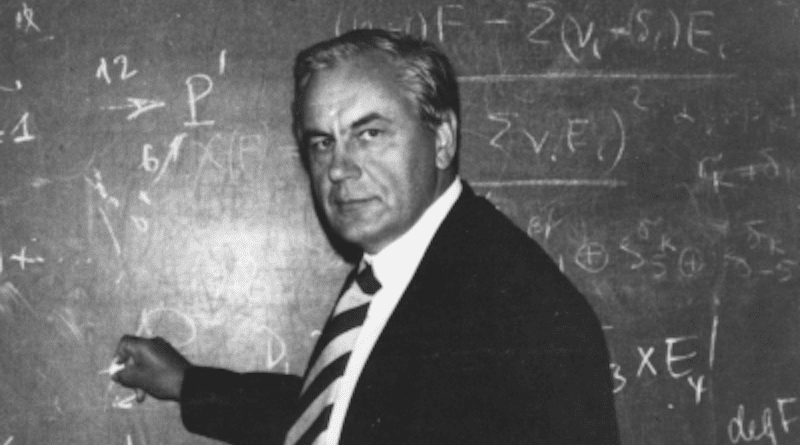Shafarevich, Anti-Semitic Soviet Mathematician Who Popularized Term ‘Russophobia,’ Recalled On Centenary Of His Birth – OpEd
By Paul Goble
Igor Shafarevich (1923-2017), a gifted Soviet mathematician first associated with the dissident movement in the USSR but notorious for his writings about “Russophobia” which suggested the Russians, “a big nation,” were being destroyed by “a small nation,” which many identified as the Jews, is being celebrated on the centenary of his birth.
The commemorations, the most prominent of which is by Vladimir Malyshev, are especially useful in calling attention to the way in which ideas associated with Shafarevich beyond any question have informed the thinking and behavior of Kremlin dictator Vladimir Putin (stoletie.ru/sozidateli/aktualnyj_shafarevich_985.htm).
Shafarevich attracted international attention after the death of Stalin not only for his achievements in mathematics but even more for his prominence among those who protested against Lysenkoism, among the creators along with Academician Andrey Sakharov of the Committee on Human Rights, and his essay in Solzhenitsyn’s From Under the Rubble.
But he is now being recalled less for his mathematical genius and participation in the mainstream of the Soviet dissident movement than for his attacks on liberalism and his insistence that the West has always wanted to destroy Russia and the Russian people, views that are echoed by those in the Kremlin today, Malyshev says.
Shafarevich signaled what he really cared about in an essay entitled “The Emigration Phenomenon,” in which he attacked those who treated the right to emigrate as the highest good while refusing to address the real problems of the overwhelming majority of the Russian people at all.
Then in his book Socialism as a Phenomenon of World History, the mathematician argued that “Marxism is only a form of the manifestation of a global but completely unstudied force, the chief goal of which is the destruction of human society.” But his most significant contribution, Malyshev says, was Russophobia, a pamphlet he circulated in samizdat then published in 1989.
In that pamphlet, Malyshev says, “Shafarevich for the first time brough to public attention the term, “Russophobia,” the hatred and at the same time fear of everything and everyone Russian.” He showed that “both the Bolsheviks with communist slogans and liberals with anti-communist ones in essence were two forms of the manifestation” of one.
That one, he continued, was “the small people,” an elite that sets itself above the people and the nation. Shafarevich did not say the Jews were the only small people, but his writings were sufficiently full of other anti-Semitic imagery and that led to his denunciation by liberals in both Russia and the West.
And in a 1989 book, Two Rods to One Breakpoint, Shafarevich “for the first time presented socialism and capitalism as “two forms of a single civilization” that lead to nowhere because they ignore the importance of the survival and flourishing of the Russian nation, another idea close to the views of Vladimir Putin.

